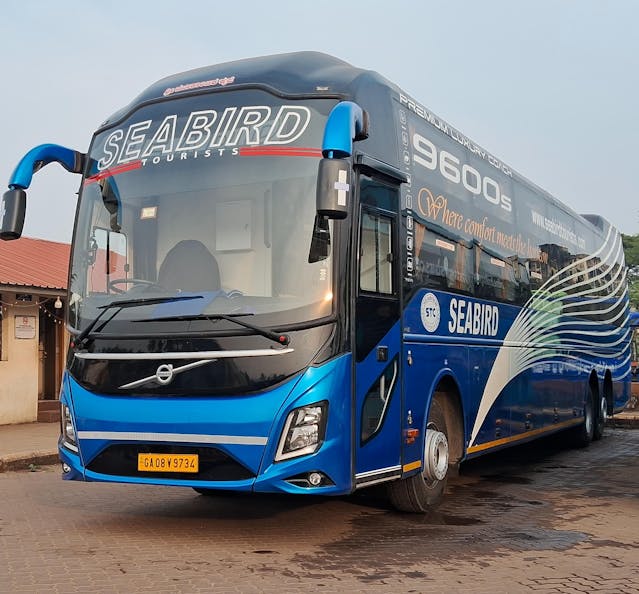Choosing the right transportation can significantly impact your team’s performance. Comfortable and safe travel between tournaments helps athletes conserve energy and stay focused on upcoming competitions. Here are the top five transportation methods that successful sports teams rely on.
1. Charter Bus – The Gold Standard
Charter buses remain the most popular and practical choice for sports teams of all levels. When it comes to reliable charter bus services, BCS Bus stands out as a premier option that understands the unique needs of athletic teams traveling to competitions.
Key Advantages:
- Teams travel together, building camaraderie and team spirit
- Spacious reclining seats for proper rest during long journeys
- Ample storage space for all sporting equipment and luggage
- Onboard amenities like Wi-Fi and entertainment systems for extended trips
- Professional drivers experienced in transporting sports teams
- Flexible scheduling and routing to accommodate team needs
- Climate control to ensure optimal comfort regardless of weather
Charter buses offer the perfect balance of comfort, cost-effectiveness, and team unity. Players can review game footage, discuss strategies, or simply rest before competitions. The ability to keep the entire team together during travel creates invaluable bonding opportunities.
Average Cost: $1,200-2,500 per day depending on bus class and distance
2. Team Vans – Perfect for Smaller Groups
For smaller teams (8-15 people) or shorter distances, team vans provide an economical and flexible solution. This option works particularly well for college teams and youth sports organizations.
Benefits:
- More cost-effective for smaller groups
- Easy parking and maneuverability in tight spaces
- Option to rent multiple vans for larger teams
- Access to remote venues where larger buses might struggle
- Lower fuel costs compared to charter buses
- Greater flexibility for spontaneous stops
Recommended Models: Ford Transit, Mercedes Sprinter, Chevrolet Express
Average Cost: $150-300 per day per van
3. Air Travel – When Time Matters Most
For distances exceeding 8-10 hours of driving or when time is critical, air travel becomes essential. This is particularly important for professional and elite amateur teams.
Advantages:
- Dramatic time savings for long-distance travel
- Reduced physical fatigue for athletes
- More preparation time at destination
- Group booking discounts often available
- Ability to compete in distant tournaments without excessive travel stress
Travel Tips:
- Book early for group rates and seat selection
- Choose direct flights when possible
- Understand sports equipment policies and fees
- Plan arrival at least one day before competition
Average Cost: $200-800 per person depending on destination and timing
4. Rail Transportation – Comfort and Reliability
In regions with well-developed rail networks, trains offer an excellent alternative for medium-distance travel. This option provides unique advantages for team travel.
Benefits:
- Consistent schedules unaffected by traffic conditions
- Spacious cars allowing free movement during travel
- Dining cars for team meals and meetings
- Opportunity for team bonding and strategy sessions
- Environmentally friendly option
- Often more comfortable than road travel for long distances
Considerations:
- Limited routes in some regions
- May require additional ground transportation from stations
- Advanced booking recommended for group seating
5. Combined Transportation – Ultimate Flexibility
For complex tournament schedules or multi-location championships, combining different transportation methods often provides the optimal solution.
Common Combinations:
- Flight for main travel + local charter bus rental
- Train to major city + charter bus to final destination
- Team vans for regional travel + air travel between distant regions
- Charter bus for equipment transport + flights for team members
Strategic Advantages:
- Cost and time optimization for each travel segment
- Adaptation to specific requirements of each location
- Flexibility to handle unexpected schedule changes
- Ability to manage different budget constraints throughout the season
Choosing the Right Transportation
Consider these critical factors when making transportation decisions:
Budget Constraints – Determine what transportation options fit within your financial parameters
Group Size – Larger teams often benefit from charter buses, while smaller groups might prefer vans
Travel Distance – Under 4 hours favor vans, 4-8 hours are ideal for charter buses, over 8 hours consider air travel
Equipment Volume – Sports gear requires significant storage space that not all options can accommodate
Time Sensitivity – Championship tournaments may justify higher costs for faster travel
Athlete Comfort – Arriving rested and ready to compete should be a priority
Conclusion
Successful sports teams understand that transportation is more than just getting from point A to point B—it’s about arriving prepared to win. Charter buses, particularly reliable services like BCS Bus, continue to lead the industry by providing the optimal combination of comfort, cost-effectiveness, and team-building opportunities.
While each transportation method has its place, the key is matching your choice to your specific needs, budget, and competitive schedule. Invest in quality transportation, and you’re investing in your team’s success. Plan ahead, prioritize athlete comfort, and remember that the journey to victory begins with how you travel to the competition.
